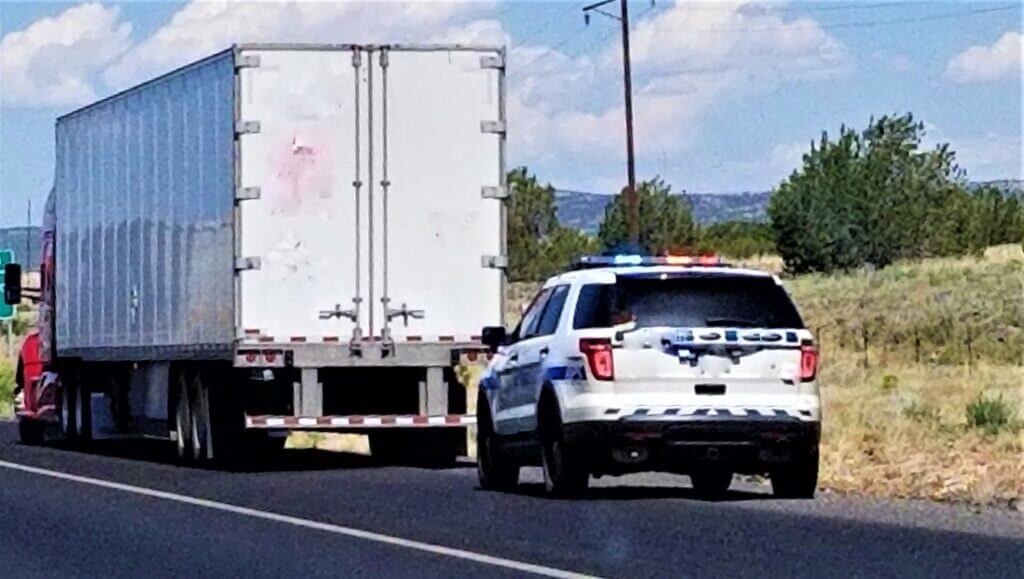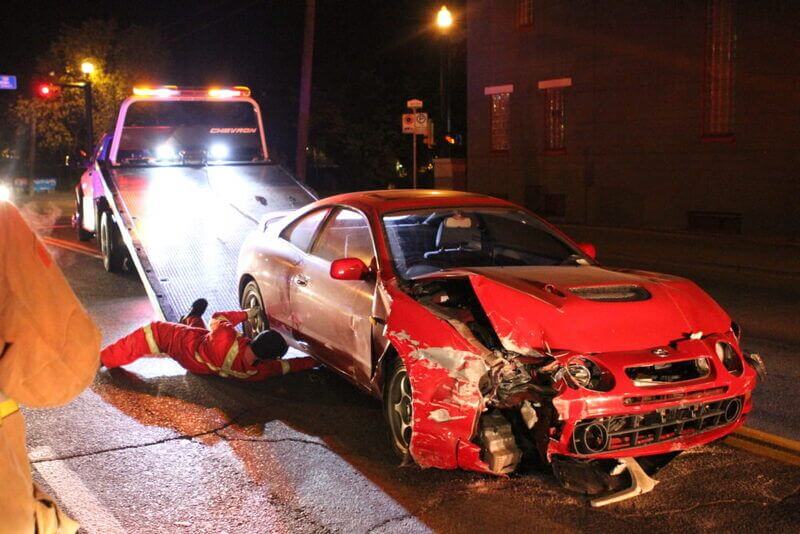Negligent Hiring of Tractor-Trailer Drivers
Trucking companies have a legal responsibility to practice due diligence when hiring commercial truck drivers. Federal and State laws require extensive training, special licensing, and supervision of truck drivers to protect other drivers who share the roadway with large trucks.
Unfortunately, some trucking companies value profits over the safety of other drivers. To cut costs, they sometimes hire unqualified truck drivers, fail to properly train their drivers, or don’t run background checks on drivers who may have an unsafe driving history.
The experienced Georgia truck accident attorneys at Blasingame, Burch, Garrard & Ashley, P.C. help victims who have been seriously injured, or those who have lost a loved one, in a truck crash. When trucking companies fail to hire safe or qualified drivers, or they don’t train or supervise their truck drivers adequately, we hold the trucking company responsible.
If you have catastrophic injuries from a truck crash or your loved one was killed in a crash with a semi-truck, call us 24/7 at 706-354-4000 and speak to an attorney. If it’s after hours or on a weekend or holiday, hit the prompt to speak to a personal injury attorney immediately.

What is Negligent Hiring?
Negligent hiring is a claim made by an injured party against a company or organization based on evidence that the employer hired someone despite an employee’s unsafe background or lack of qualifications.
Georgia Trucking Laws
The Federal Motor Carrier Safety Administration (FMCSA) enforces strict laws to ensure the safety of other drivers in Georgia. The FMCSA is an agency within the United States Department of Transportation that regulates the trucking industry. The FMCSA’s primary goal is to help reduce crashes, injuries, and fatalities involving large trucks and buses in the U.S.
Truck drivers must meet the minimum qualifications set forth in 49 CFR 391.11. Pursuant to 391.11(a), motor carriers shall not allow a driver to drive a commercial motor vehicle (CMV) unless they meet the minimum qualifications. Some general qualifications include:
- A person shall not drive a commercial motor vehicle unless they are qualified to do so.
- Drivers must be physically qualified to drive a commercial motor vehicle.
- Anyone who drives a CMV must have a valid commercial motor vehicle operator’s license.
- A CMV driver must prepare and furnish the motor carrier that employs him/her with a list of violations or certificates as required by §391.27.
- A CMV driver must successfully complete a driver’s road test and be issued a certificate of driver’s road test or equivalent.

What Disqualifies a Driver?
A truck driver may be disqualified from obtaining or keeping a valid CDL license for several reasons. Some examples include:
- DUI offenses, if the driver failed to undertake or complete a rehabilitation program prescribed by a substance abuse professional.
- Driving with a suspended license.
- Refusing to undergo alcohol or drug testing.
- A violation of texting while driving a commercial motor vehicle.
- Certain felony charges such as a felony involving the use of a commercial motor vehicle.
- Lying about past employment, traffic violations, or falsifying documents.
Other offenses that may disqualify a driver may include serious traffic violations, violating an out-of-service order, or failing a background check.

Each year trucking companies are legally required to review the motor vehicle records of their drivers to determine whether each driver meets the minimum requirements for safe driving or be disqualified to drive a commercial motor vehicle. Trucking companies must consider all evidence that a driver has violated any applicable Federal Motor Carrier Safety Regulations or Hazardous Materials Regulations.
It’s important to remember that Federal Motor Carrier Safety Regulations are the minimum safety standards and that responsible trucking companies can and should do more to protect their drivers and other drivers who share the roadway with big trucks.
Learn more about FMCSA driver qualifications here.

A History of Results
We have an established track record of bringing our clients results they expect and deserve. We have recovered millions of dollars for our clients, and we know how to fight the trucking and insurance companies.
How to Prove Negligent Hiring
If you or a loved one have been injured in a wreck with a large truck, on the surface it may appear to be an open and shut case. Often, there are factors that may not be obvious to the average person. An experienced truck accident attorney can obtain important records such as driver qualification files, prior work records, license suspensions, crash or moving violations, substance abuse records, medical exam records, or any other pertinent documentation.
If there is evidence that a trucking company has employed drivers with a history of unsafe driving, failed drug tests, expired licenses, disqualifying conditions, or previous crashes, it may constitute negligent hiring. Regardless of what type of claim you are bringing; you must be able to prove that another party was at fault for your crash to hold them financially responsible for your damages.
Financial compensation may be available for emergency room care, medical bills, rehabilitation, mental health treatment, lost wages, diminished earning potential, disfigurement, disability, and the wrongful death of a family member.

Contact us Today!
Our experienced personal injury attorneys have the skills and knowledge to recover the compensation you deserve. We can determine whether you have a valid case and investigate the crash and the trucking company’s hiring policies and procedures. We will protect your interests by pursuing a case against the truck driver and/or trucking company responsible, and by representing you at trial, if necessary.
If you suffered severe injuries in a truck crash, or your loved one was killed in a wreck with a big truck, contact us today. Please call our office at (706) 354-4000 to schedule a free consultation or fill out our contact form to tell us more about your case. There is no cost unless we resolve your claim.
